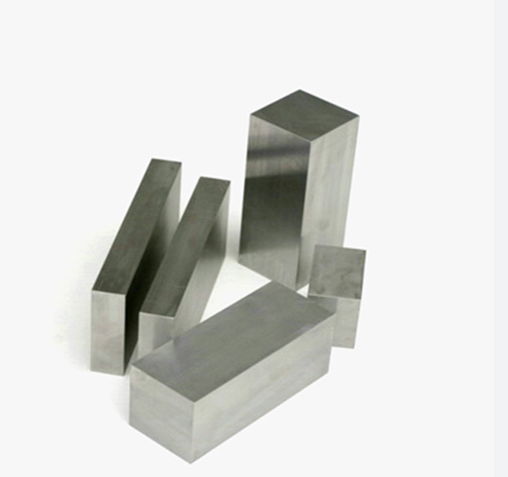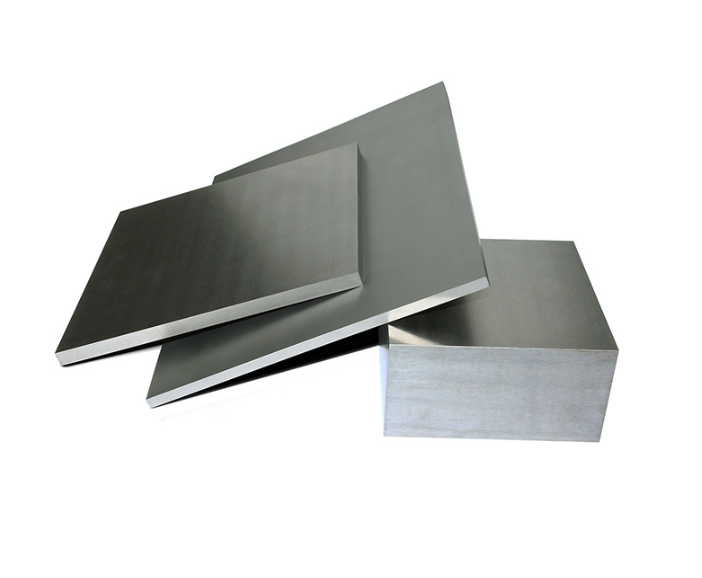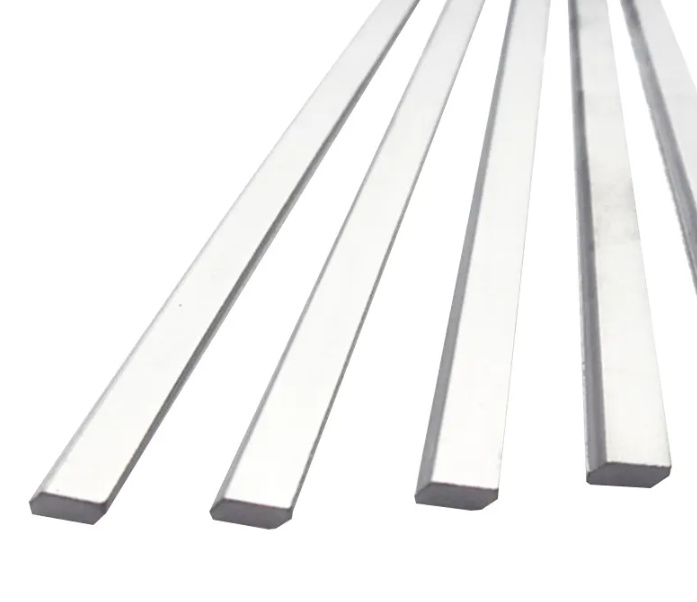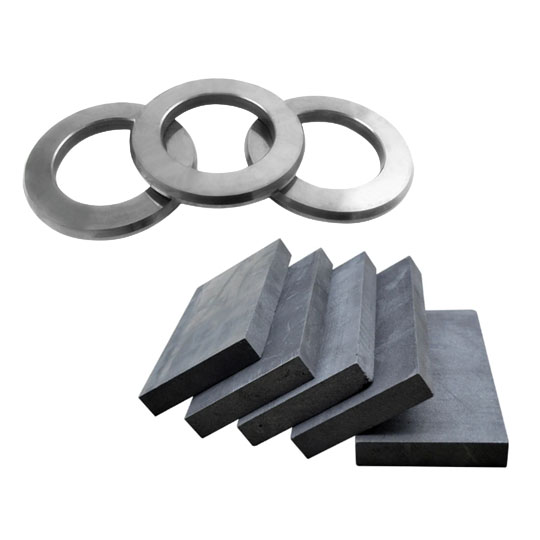Dans le monde rapide de la fabrication moderne, où la précision et la rapidité sont primordiales, la cannelure multiple est un élément essentiel de la production. carbure Les fraises en bout sont devenues des outils essentiels pour obtenir des résultats exceptionnels. Ces instruments de pointe, avec leurs arêtes de coupe multiples et leur construction robuste en carbure, offrent des taux d'enlèvement de matière inégalés, des finitions de surface supérieures et une durée de vie prolongée. Ce guide complet se penche sur les complexités des fraises en carbure à cannelures multiples, en explorant leur conception, leurs applications et les avantages de choisir un fournisseur de confiance tel que TRUER.
Qu'est-ce qu'une fraise en carbure à gorges multiples ?
Les fraises en carbure à gorges multiples sont des outils de coupe rotatifs spécialement conçus pour les opérations d'usinage à grande vitesse. Ils comportent plusieurs arêtes de coupe, ou goujures, généralement de deux à huit ou plus, disposées sur la circonférence de l'extrémité de coupe de l'outil. Ces goujures, associées à la dureté et à la résistance à l'usure exceptionnelles du carbure, permettent aux fraises à goujures multiples d'enlever la matière rapidement et efficacement, produisant des formes précises et complexes dans une large gamme de matériaux.
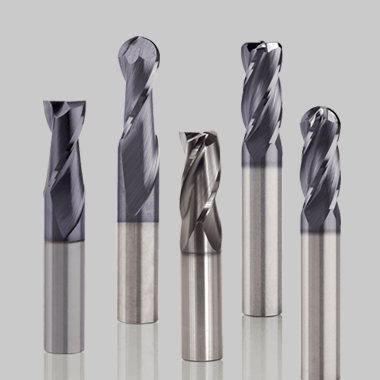
Anatomie d'un outil performant : Conception et caractéristiques
Les fraises en carbure à gorges multiples sont conçues avec plusieurs caractéristiques clés qui contribuent à leur performance exceptionnelle :
- Numéro de flûte : Le nombre de goujures influence considérablement les caractéristiques de coupe de l'outil. Un plus grand nombre de goujures permet généralement d'obtenir des taux d'enlèvement de matière plus élevés et des finitions de surface plus lisses, mais peut nécessiter une augmentation de la vitesse et de la puissance de la broche.
- Angle de l'hélice : L'angle des goujures par rapport à l'axe de l'outil affecte l'évacuation des copeaux et les forces de coupe. Des angles d'hélice plus élevés favorisent une évacuation efficace des copeaux, tandis que des angles plus faibles augmentent la résistance de l'arête de coupe.
- Géométrie de la flûte : La forme et la conception des goujures, y compris l'angle de coupe, l'angle de dépouille et les caractéristiques du brise-copeaux, sont optimisées pour des matériaux et des conditions de coupe spécifiques.
- Qualité du carbure : La sélection de la nuance de carbure appropriée, basée sur des facteurs tels que la dureté, la ténacité et la résistance à l'usure, est cruciale pour garantir une durée de vie et des performances optimales de l'outil.
- Revêtements : Les revêtements avancés, tels que TiN, TiAlN et DLC, peuvent encore renforcer la résistance à l'usure, réduire le frottement et améliorer la durée de vie des outils, en particulier dans les applications d'usinage à haute température ou abrasives.
Catégoriser les prouesses de coupe : Types de fraises à cannelures multiples
Les fraises en carbure à gorges multiples sont disponibles dans différentes configurations pour répondre à diverses exigences d'usinage :
| Type de broyeur | Caractéristiques | Applications |
|---|---|---|
| Fraises carrées | Extrémité de coupe plate, angles à 90 degrés | Fraisage, rainurage et pochettes à usage général |
| Fraises à bec sphérique | Extrémité de coupe hémisphérique | Fraisage de contours, profilage 3D, finitions de surfaces lisses |
| Fraises à rayon d'angle | Coins arrondis avec un rayon spécifique | Bords arrondis, chanfreins, usinage de filets |
| Fraises à ébaucher | Géométrie agressive des goujures, grand dégagement des copeaux | Enlèvement rapide de matière, opérations d'ébauche |
| Fraises de finition | Géométrie fine des goujures, angles d'hélice élevés | Finition fine, surfaces lisses, contournage de précision |
Tableau 1 : Types courants de fraises à cannelures multiples
Applications dans toutes les industries : Quand la précision rencontre la polyvalence
Les performances exceptionnelles et la polyvalence des fraises en carbure à gorges multiples en ont fait des outils indispensables dans un grand nombre d'industries :
- Aérospatiale : Usinage de composants aéronautiques complexes, de pièces de moteur et d'éléments structurels à partir d'alliages à haute résistance.
- Automobile : Fabrication de blocs moteurs, de culasses, de composants de transmission et d'autres pièces automobiles essentielles.
- Dispositifs médicaux : Création d'implants complexes, d'instruments chirurgicaux et d'équipements médicaux de haute précision et biocompatibles.
- Fabrication de moules : Production de moules et de matrices pour diverses industries, y compris les plastiques, le caoutchouc et le moulage des métaux.
- Fabrication générale : Un large éventail d'applications, y compris le prototypage, la construction de montages et les tâches d'usinage générales.
Peser les avantages et les limites
Avantages des fraises en carbure à gorges multiples :
- Taux d'enlèvement de matière élevé : Les arêtes de coupe multiples permettent un enlèvement de matière rapide et efficace.
- Amélioration des finitions de surface : Un plus grand nombre de cannelures produit des finitions de surface plus lisses, réduisant ou éliminant le besoin d'opérations de finition secondaires.
- Amélioration de la durée de vie de l'outil : La dureté exceptionnelle du carbure et sa résistance à l'usure prolongent la durée de vie des outils, réduisant ainsi les temps d'arrêt et les coûts d'outillage.
- Une plus grande polyvalence : Disponibles dans une large gamme de tailles, de géométries et de revêtements pour répondre à diverses applications d'usinage.
Limites :
- Coût initial plus élevé : Par rapport aux fraises en acier rapide, les fraises en carbure ont généralement un coût initial plus élevé.
- Évacuation des puces : L'élimination efficace des copeaux est cruciale pour éviter la recoupe des copeaux et l'endommagement de l'outil, ce qui nécessite une application appropriée du liquide de refroidissement et des paramètres d'usinage.
- La fragilité : La dureté du carbure le rend plus fragile que l'acier rapide, ce qui nécessite une manipulation et des pratiques d'usinage prudentes pour éviter les ruptures.
Tableau 3 : Avantages et limites des fraises en carbure à gorges multiples
L'avantage TRUER : Pourquoi nous choisir ?
- Un engagement inébranlable en faveur de la qualité : Nous ne nous approvisionnons qu'en produits de la plus haute qualité matériaux en carbure et appliquent des mesures rigoureuses de contrôle de la qualité tout au long du processus de fabrication.
- Expertise en matière d'applications : Notre équipe d'ingénieurs expérimentés vous conseille dans le choix de la fraise optimale pour vos besoins d'usinage spécifiques.
- Technologie de pointe : Nous nous appuyons sur des technologies de fabrication avancées et des techniques de rectification de précision pour produire des fraises d'une précision et d'une performance exceptionnelles.
- Des solutions axées sur le client : Nous sommes déterminés à comprendre vos défis uniques et à fournir des solutions sur mesure qui dépassent les attentes.
FAQs : Répondre à vos questions sur les broyeurs à cannelures multiples
1. Comment choisir le nombre de cannelures adapté à mon application ?
Le nombre optimal de goujures dépend de facteurs tels que la matière à usiner, l'état de surface souhaité et la puissance disponible de la broche. Un plus grand nombre de goujures permet généralement d'obtenir des finitions plus lisses et des taux d'enlèvement de matière plus élevés, mais nécessite une augmentation de la vitesse et de la puissance de la broche.
2. Quelle est l'importance de l'angle d'hélice sur une fraise à plusieurs tranchants ?
L'angle d'hélice influence l'évacuation des copeaux et les forces de coupe. Des angles d'hélice plus élevés favorisent une évacuation efficace des copeaux, tandis que des angles plus faibles augmentent la résistance de l'arête de coupe.
3. Comment éviter le recoupement des copeaux lors de l'utilisation d'une fraise à plusieurs tranchants ?
L'évacuation efficace des copeaux est cruciale. Veillez à l'application correcte du liquide de refroidissement, utilisez les paramètres d'usinage appropriés et envisagez d'utiliser des fraises avec brise-copeaux pour faciliter l'évacuation des copeaux.
4. Quels sont les signes d'usure d'une fraise à cannelures multiples et quand doit-elle être remplacée ?
Les signes d'usure comprennent des arêtes de coupe ébréchées ou usées, des forces de coupe accrues, un mauvais état de surface et des modifications du son ou des vibrations pendant l'usinage. Remplacez le foret lorsque l'un de ces signes devient apparent afin d'éviter d'endommager l'outil ou de provoquer des défauts dans la pièce à usiner.
5. Pouvez-vous fournir des fraises à cannelures multiples sur mesure pour répondre à mes besoins d'usinage spécifiques ?
Oui, nous sommes spécialisés dans la fourniture de solutions d'outillage sur mesure. Contactez-nous pour nous faire part de vos besoins spécifiques et notre équipe d'ingénieurs travaillera en étroite collaboration avec vous pour concevoir et fabriquer le foret idéal pour votre application.

